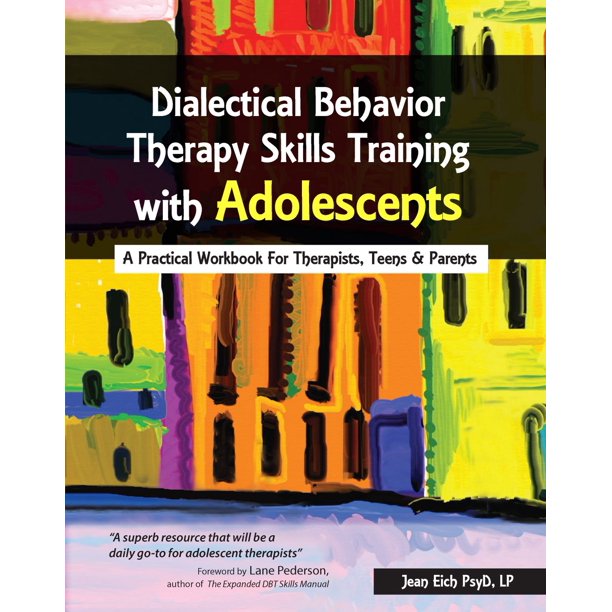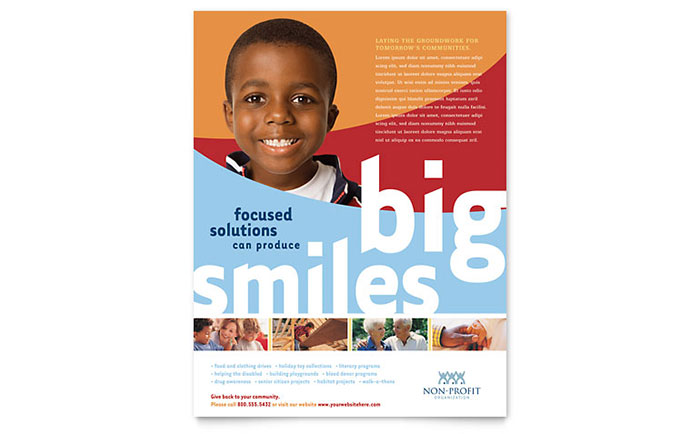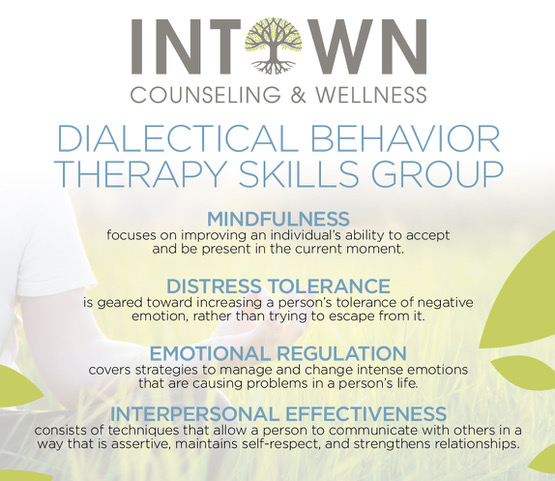How do you make your home a more soothing, calming, environment this holiday season? How can you provide opportunities for you and your family to Self soothe? Ask yourself the following questions:
Evaluation of behavioural skills training for teaching abduction-prevention skills to young children. Journal of Applied Behavior Analysis, 38, 67-78. Miles, N.I., & Wilder, D.A. The effects of behavioral skills training on caregiver implementation of guided compliance. Journal of Applied Behavior Analysis, 42(2), 405-410. The Seattle Clinic is a growing community of experts in mental healthcare committed to providing leading-edge evidence-based therapies for clients, while cultivating a collegial atmosphere that facilitates lifelong learning, professional development, and work-life balance.
- In 1987, a simulated training town called “Hogan’s Alley” was added, followed by facilities to accommodate engineering research, hostage rescue teams and behavioral science teams. The one-of-a-kind Center for Intelligence Training and a state-of-the-arts laboratory building were added in 2002 and 2003 respectively.
- CBH non-Emergency Services 24/7 Hotline: 888-545-2600 TTY number: 888-436-7482.
VISION: what is pretty and calming to look at around your house? Are there any decorations that you like to look at that make you feel particularly calm and secure?
TASTE: what are soothing tastes and flavors available in the house? Are there any flavors or tastes that you associate with the holidays, like peppermint, hot chocolate or apple cider?
TOUCH: what soothing and calming things are available for to touch in the house? Are there warm cozy blankets? A warm fire? Soft clothes?
HEARING: what calming, soothing holiday sounds do you have around the house? How did you provide a calming holiday environment with sound? Do you play holiday music? Focus on conversation? Have a crackling fire?
SMELL: what smells like the holidays to you, around your house?

Well, here we are again – the HOLIDAYS – the MOST STRESSFUL time of the year!
Halloween is done – and Thanksgiving, Christmas, Hanukkah, and New Year’s are looming ahead – AHH!
Stress, as we all know, can come from a variety of sources – and at this time of year, turkey with the in-laws, hanging Christmas lights, and opening your post-holiday Visa bill are just some of the many sources of our escalating stress levels.
Holiday Stressdialectical Behavioral Training Seminars
During the holiday season, research surveys routinely show that more than HALF of us feel overwhelmed by the stress of the Holidays – meaning that all this holiday-cheer causes us as much stress as do dentist visits and speeding tickets!
According to the American Psychological Association (APA), more than half of all women (51%) and men (43%) in the United States experience heightened stress during the holidays – enough stress to put them at increased risk for physical and mental health effects.

Juggling work and added family responsibilities, such as planning for holiday gatherings, shopping for gifts, and cooking for extra guests, leave many of us feeling like we can’t take time to relax while we’re struggling to get everything done for the holidays.
Survey findings show that added holiday stress, on top of already high stress levels associated with work and the economy, makes it hard to relax. Cited as “multiple stressors” in the APA research are lack of time (69%), lack of money (69%), and pressure to give or get gifts (51%).
In addition, men and women who experience elevated levels of stress, rate their psychological and physical health lower than those who are not experiencing stress – and are more likely to experience a range of health ailments and symptoms such as sadness (59%), sleep problems (56%), and lack of energy (55%).
I hate to sound like a Scrooge (because I truly love the Holiday Season), but it’s interesting to note that when New Year’s Day rolls around, “reduce my stress levels” is second only to “lose some weight” among the most popular New Year resolutions. This is encouraging, not only because stress is associated with a higher risk for many diseases, but also because of the many very effective, very easy-to-follow strategies that can help control stress and improve Mental Wellness.
The link between stress and disease is partly due to the fact that stress generally encourages us to eat more and exercise less – which is exactly the opposite of what we should be doing when we’re under stress. It also appears that these higher stress levels also cause a direct change in the body’s metabolic machinery – so brain cells shrink, immune cells shutoff, and both mood and energy levels plummet. Think about it – this means that holiday stress is making us feel moody, fatigued, bloated, confused, irritable, and sick – not exactly the type of “holiday cheer” you’re probably looking for in your stocking…
A key culprit in these metabolic changes appears to be an imbalance between body’s microbiome, immune system, adrenal (stress) system, and gut-brain-axis. The latest science is showing us that imbalances between these vital systems appears to be at the heart of the epidemic of depression and fatigue that we see (in men and women) across all parts of our modern society.
Luckily, we have a lot of options for controlling stress. Stress management, regular exercise, and a balanced diet can all help to control the stress response and keep metabolic balance right where it should be – but, what else can you do to help maintain metabolic balance during the Holiday Season?
Here are my “Top 5” ways to resist the detrimental health effects of Holiday Stress:
- Love Yourself First – Have an “outlet” (a hobby or some diversion outside of work…
- Practice Gratitude – being thankful can lower your stress hormones by ~25%. Learn to tell the difference between “big” issues and “little” issues… and learn to “look on the bright side” (really) – as simplistic as it sounds, the fact that you can look to “what is improving” in a given situation can help to psychologically buffer the stress in others areas of your life…
- Connect with Others – Hang out with friends (avoid social isolation) – tough times are always easier when you’re around other people – and the Holidays are the perfect time to get together with family and friends…
- Give Back – altruistic behaviors release endorphins – giving a gift feels better than getting a gift!
- Supplement Strategically…
- Kanna (South Africa) increases stress resilience by 60% within 3 weeks and provides rapid anti-stress effects after a single use.
- Rafuma (China/Japan) – reduces depression by 30% within 4 weeks and 50% within 8 weeks.
- Ashwagandha (India) – reduces stress by 70% and cortisol exposure by 25%.
- Magnolia Bark (Africa) – reduces negative mood states such as anxiety, tension, and irritability by as much as 42% within 4 weeks.
- Prebiotic Fiber such as galactomannan (India) and galacto-oligo-saccharide (England) can help to reduce cortisol (primary stress hormone) and improve stress resilience by “feeding” the good bacteria in the gut.
- Enzyme-treated Asparagus (Japan) – induces the production of natural anti-stress molecules called Heat Shock Proteins that can protect cells from stress and support mood and cognitive function.
- Guayusa leaf (Amazon rainforest) provides energy and endurance without the jitters or crash common with high-stimulant or high-sugar energy drinks.
- Pine Bark (New Zealand) can help to calm the tense/anxious/stressed “monkey mind” that keeps us from concentrating and performing at our mental peak.
- AHCC (Japan) – stands for “active hexose correlated compound” derived from cultured mushroom mycelia, which supports microRNA signaling between the microbiome and the brain to reduce anxiety.
- Ginger & Artichoke (India) reduce feelings of discomfort and bloating after eating a meal and the combination improves overall GI function by 24%.
- Probiotic Bacteria (Canada) – specific strains such as Lactobacillus rhamnosus R0011 have been shown to reduce stress by lowering cortisol exposure and improving levels of GABA(relaxing neurotransmitter).
- Pomegranate (California) – improves overall brain activation in areas of the brain associated with memory/cognition and areas associated with calming/relaxation – delivering a combined benefit of “engaged focus” when you’re most stressed.
- Theanine (Japan) is an amino acid naturally found in green tea leaves that can help shift brain waves away from tension/anxiety (beta-waves) and toward “relaxed alertness” (alpha-waves) within as little as 30 minutes.
- Saffron (Spain) – has been shown to be as effective as Ritalin for focus and Prozac for mood – both of which can be in short supply during the height of Holiday Stress!
- Corn Grass (from North America) helps you fall asleep 33% faster while increasing REM rejuvenating sleep by 24% and boosting overall sleep quality by 40%.
In bringing this physical and mental balance into our Holiday Seasons, we’re better able to resist the detrimental health effects of stress and less likely to suffer the “Bah-Humbugs” that so many of us succumb to each year. By maintaining metabolic balance during the most stressful time of year, we’ll all be happier and healthier in the New Year. Happy Holidays!
Dialectical Behavioral Therapy Training
About the Author: Dr. Shawn Talbott received dual Bachelor’s degrees in Sports Medicine (B.S.) and Fitness Management (B.A.) from Marietta College, his Master’s degree (M.S.) in Exercise Science from UMASS, and his Ph.D. in Nutritional Biochemistry from Rutgers. His research is focused on natural products to support human performance and psychological vigor (physical energy, mental acuity, and emotional well-being).


Dr. Talbott’s recent projects include two academic textbooks, an award-winning documentary film, and several best-selling books translated into multiple languages. His work has been featured on The Dr. Oz Show, the TED stage, and the White House. He serves as the Chief Science Officer for Amare Global, The Mental Wellness Company.
Posted by DocTalbott on November 13, 2019
https://bestfutureyou.com/2019/11/13/holiday-stress-and-mental-wellness/
